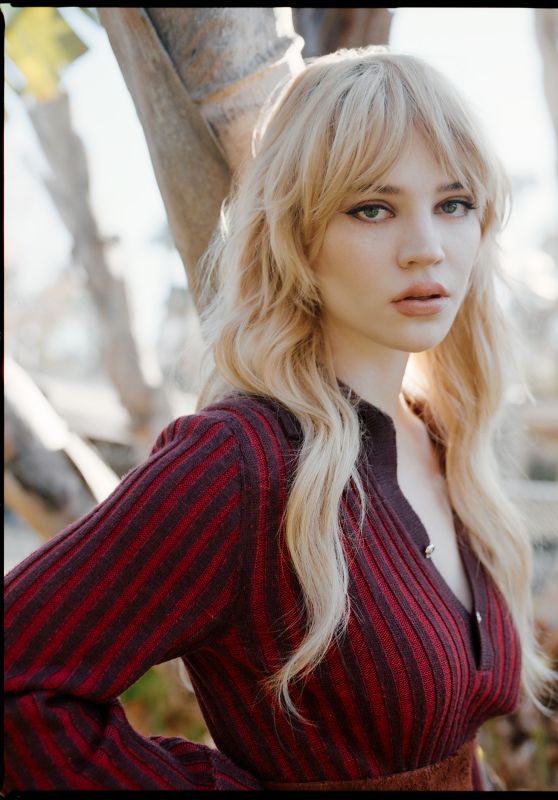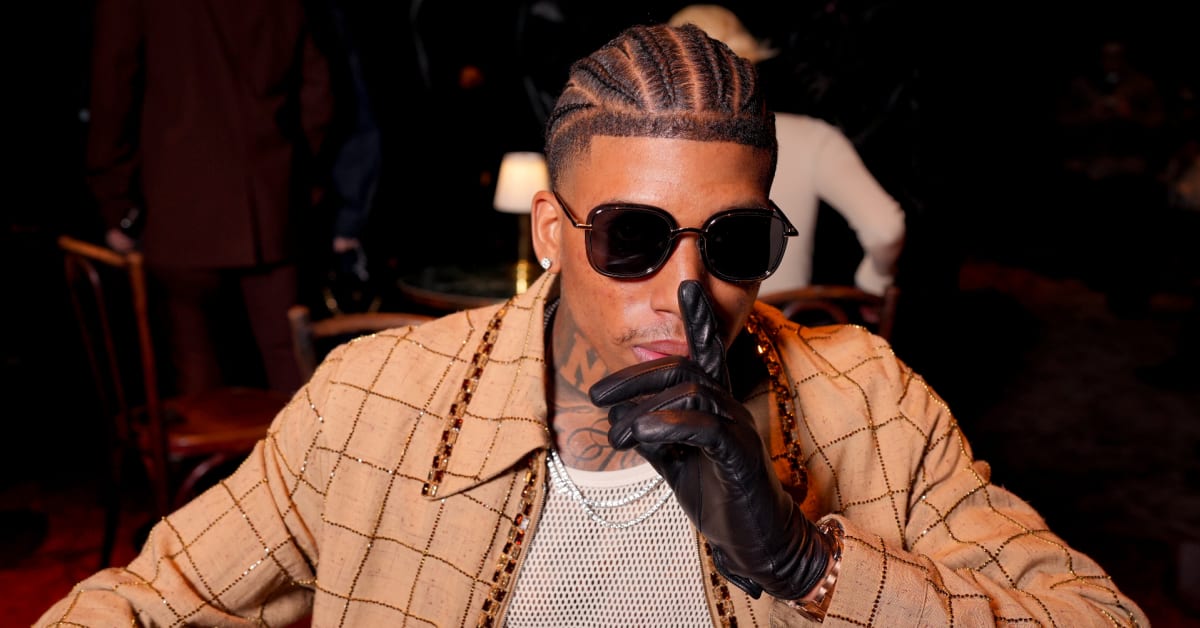One of the first truly monumental album releases of 2025 has arrived in the form of The Weeknd’s Hurry Up Tomorrow. Originally scheduled to arrive on January 24, the album was postponed by a week due to the tragic wildfires across Los Angeles. Now, with the album out and a freshly announced North American tour with Playboi Carti and Mike Dean on the horizon, Abel season has arrived in full force.
And from the start, it’s clear The Weeknd is swinging for the fences throughout the album. The first words Abel sings—on album opener “Wake Me Up”—might as well serve as a philosophy for the entire record: “All I have is my legacy.”
Hurry Up Tomorrow, the third in a trilogy—following After Hours (2020) and Dawn FM (2022)—that manages to be both a step forward and a series wrap of sorts, a fitting conclusion considering Abel is reportedly retiring The Weeknd name after this album. He runs through all the musical styles he’s helped pioneer throughout his career, from the druggy R&B of his early mysterious mixtapes to the unabashed pop spectacle of “Blinding Lights.” The Weeknd is unequivocally one of the biggest artists on the entire planet, and he’s saying goodbye in the grandest of ways.
The album is massive, containing 22 songs that clock in at just under an hour and a half. Tesfaye taps into his cinematic daydreams, creating a soundtrack more fitting for IMAX screens than laptop speakers. (There is an accompanying film, which will have the same name, expected to arrive in May).
Abel tempers the audaciousness of the concept with safer bets scattered across the album, like the glimmering radio sheen of “Take Me Back To LA” and the dancefloor disco of “Open Hearts.” These are classic modes from The Weeknd’s history recontextualized for this massive moment.
Does this greatest-hits like approach to what might be the last Weeknd record make it his best? Or does safety inhibit innovation? We grapple with these questions plus additional takeaways below.
We know this is the end of his second trilogy, but is it really the end of The Weeknd? It’s a question that could take weeks, months, or even years to know for sure. But at the end of the album’s closer, the title track, he’s got a lyric that seems to confirm that something is done: “I have no more fights left to win/Tie me up to face it, I can't run away, and/I'll accept that it's the end.”
But again, that just raises more questions. Is he just going to start singing under his birth name now? Will he create an alter ego? Was The Weeknd ever really an alter ego in the first place? Was it just a phase? The questions can keep piling from there, but looking at these lyrics, and the way the album surprisingly transitions to an earlier Weeknd release like reincarnation (more on that later), there is indeed a sheen of finality to this journey.—Peter A. Berry
Abel decided to close his second trilogy in grand fashion. At 85 minutes, it's the longest album of Abel's career. And the length of time, the subject matter, and grandiose production give off the impression of someone who's had a lot of time to reflect on both themselves and their contributions to their chosen craft.
You can feel the heft of it all on "Wake Me Up” Laced with a spacy flip of the iconic Scarface theme, the track sounds like either the beginning or end of decadence, with Weeknd using the moment to reflect on his own legacy. Then, of course, it's time to hit the dancefloor as the beat transitions into a "Thriller"-esque nocturnal thrill. Between the Michael Jackson nod and the serene ominousness of it all, the track plays out like a microcosm for everything The Weeknd's ever been, which manifests itself throughout the entire album, too.
There are familiar faces, audio aesthetics and his customary themes of hedonism, romance and the multilayered consequences of fame. Final or not, this is a statement album rendered with exhaustive attention to detail and the concept of closure. This is Weeknd's version of leaving it all on the court.
Fittingly, the album ends, neatly transitioning into his House of Balloons opener, "High for This." That sequence evokes the cyclical nature of late nights and the clarity of the morning after.—Peter A. Berry
It's tempting to say this one's for Day one Weeknd fans, but really, all versions of Abel are present. If you love brooding ambiance and pensive reflection, you'll love tracks like the spectral "Without a Warning" or "Reflections Laughing." If you want new wave-inflected Abel, check out "Take Me to LA." If you like Michael Jackson Abel, "Wake Me Up" was made for you. His classical collaborators are there (we’ll get to that), too, and it all sounds as sleek as ever. As lush as it is comprehensive, the LP feels like one Weeknd designed to be a self-contained time capsule for his entire career — a greatest hits album, except all the tracks are new.
Meanwhile, tracks like "Cry for Me" include militaristic percussion with '80s synths for a track that screams stadium status. On one hand, Weeknd is always cinematic, but the expanded length of the album, and even the production flourishes, make it feel like a climax really is approaching. —Peter A. Berry
If The Weeknd—operating under this identity, at least—is really saying goodbye, he's not just saying it to his fans; he's throwing the deuces at his fave collaborators, too. So then, it's only right that his pals pull up for his last outing. Across the project, we get Weeknd reunions with Travis Scott, Future, Lana Del Rey and others.
Popping out for "Reflections Laughing," Travis Scott trades his customarily metallic melodies for punchy staccato couplets that emanate endearing self-absorption. The distorted quality of his verse layers Weeknd's ghostly runs with additional mystique, making this collab as engrossing as their best. Elsewhere, Future pops out for "Enjoy The Show," an exercise in wounded murmurs and lonely reflection. "I can't feel my face anymore/I don't wanna give you any space anymore/I don't wanna feel like I'm alone anymore/I can't live without you, I've been goin' through withdrawals," belts out Hendrix, serving up another pristine example of ambient hangover chunes.
Then, of course, there's Lana Del Rey, who pulls up on "The Abyss." For this one, she lends her own phantom-like vocals to a track that explores damaged love at the world's end. With their idiosyncratic brand of delicate power, they make "the abyss" sound beautiful.
But really the most important collaboration is on the production side: Mike Dean produces nearly every track, and his influence is unmistakable, with expansive-sounding synths dominating throughout.—Peter A. Berry
In September 2022, The Weeknd was all set to give an epic performance in front of a packed So-Fi crowd. There was just one problem: he lost his voice four songs into the concert. Speaking with Variety, he mentioned that the moment was one that reminded him of any music career’s ephemerality, which naturally led to the closing Weeknd saga we have today.
He alludes to that moment on the brief “I Can’t Fucking Sing” where we hear the moment his voice has betrayed him. While it was later determined that there was nothing physically wrong with him, the inclusion of this intro speaks to the weight of the moment. Naturally, it careens into the kineticism of “São Paulo,” which captures all the electricity of a supercharged live performance. After all, the show has to go on. At least for one more album.—Peter A. Berry
The Weeknd has always been a cinephile, from his early forays into horror-inspired music video to the aesthetics of Kiss Land. In his 2013 cover story with Complex, he discussed some of his influences. He said: “A lot of it is inspired by filmmakers like John Carpenter, David Cronenberg, and Ridley Scott, because they know how to capture fear.”
Hell, Tesfaye even makes an appearance in an all-time favorite among movie nerds, Uncut Gems. The Weeknd has always been cinematic in nature, so it’s no surprise that what is maybe his last album interpolates so much from the world of film. Giorgio Moroder, who has long been an all-timer in the world of film scores, is featured on the album thanks to a Midnight Express sample on “Big Sleep,” which itself is the name of a classic 1946 film starring Humphrey Bogart and Lauren Bacall.
Elsewhere, the album’s final song and its title track samples a David Lynch song from his film Eraserhead, “In Heaven (Lady in the Radiator Song).” Tesfaye also paid tribute to Lynch when he died. (The Weeknd sampled the scream of Laura Palmer from Twin Peaks in "The Hills.") Between these small clues and the Hurry Up Tomorrow film, which will star Jenna Ortega, set to arrive in May, it’s safe to say Abel Tesfaye’s fascination with film may be where he directs much of his attention in the future—whether or not he’s retired The Weeknd moniker. —Will Schube
The Weeknd had one of the great rookie years. In 2011, he debuted with House of Balloons, Thursday, and Echoes of Silence—which would later be repackaged as Trilogy—along with his work on Drake's Take Care. At that time, he was a different artist—dark, gritty, and cutting-edge, but also expansive, flooding R&B with alt sounds that would become more common as the decade progressed.
Over a decade later, remnants of that early Weeknd still remain, especially in the debauchery and dark undertones of his music. But the biggest change is in the scope. The Weeknd has been a global superstar for years, and now he’s obsessed with scale. The biggest difference between the original Trilogy and his newer work is its palatability, accessibility, and malleability: The Weeknd now embraces global sounds—from Brazilian funk to European electronica—mixing it with stadium-rocking ethos. —Dimas Sanfiorenzo
 3 hours ago
2
3 hours ago
2




















 English (US) ·
English (US) ·